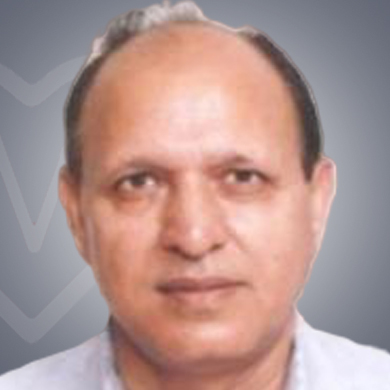
Opthalmologist
Fortis Hospital , Mohali, India39 Years of experience
Speaks: English
Dr Jaivir Singh has treated a wide variety of conditions with high success rate and accuracy. Some of the conditions treated by the doctor are:
Some of the most common eye conditions that the ophthalmologist treats are Diabetic Retinopathy, Dry eye Syndrome, and Conjunctivitis. The doctor might prescribe some antibiotics for bacterial conjunctivitis. Antibiotics might help lessen the length of infection. For dry eyes, the doctor will do physical examinations, and treatment may include use of artificial tears and reduce tear drainage.
Eye conditions can produce different symptoms and these can differ from person to person. Some of the signs and symptoms of different types of eye conditions include:
Routine eye exams are the best way to avoid any vision problems. In case you did not have an eye exam for more than a year, you should schedule a visit with your eye doctor. Being aware of some warning signs can help you take the required steps for the health of your eyesight, especially if the vision symptoms appear suddenly. In most cases, detached retina and onset of glaucoma, quick intervention is required to minimize the permanent vision loss.
You can reach Dr Jaivir Singh from 10 am to 5 pm on Monday to Saturday. The average working hours of the doctor are 47 hours a week.
Some of the popular procedures performed by Dr Jaivir Singh are listed below:
LASIK (Laser in Situ Keratomileusis) uses a laser to reshape the cornea. This procedure uses a certain laser designed to treat vision issues, improve vision, and also reduce the need for glasses and contact lenses. The laser alters the shape of your cornea.

Share Your Experience about Dr. Jaivir Singh

An ophthalmologist helps improve patients’ vision by testing the eyes in order to diagnose and treat disorders. Some ophthalmologists specialize in eye surgery to correct and fix eye problems. An ophthalmologist can provide the same services as an optometrist, such as prescribing eyeglasses as well as contact lenses to treat vision problems. While ophthalmologists are trained to treat and diagnose all eye problems, some ophthalmologists specialize in a certain field of medical and surgical eye care. They complete 1-2 years of additional training in one of the main subspecialty areas, including Pediatrics, Oculo-Plastic Surgery, and Neurology. They also participate in scientific research on the treatment for eye diseases and vision issues.
For the evaluation of your eye condition, you have to get certain tests done which may include the following:
An eye exam involves a number of tests to check your vision and eye diseases. The eye doctor will use various instruments and focus bright lights at the eyes and ask you to look through an array of different lenses. Each test in an eye exam will evaluate a different aspect of vision and eye health..
Below are some situations when you need to see an opthalmologist:
The above signs and symptoms should not be ignored and must be discussed with an eye specialist because the diagnosis of eye condition at an early stage will help the doctor to plan effective treatment, They may also discuss your symptoms with other doctors to determine the right treatment.